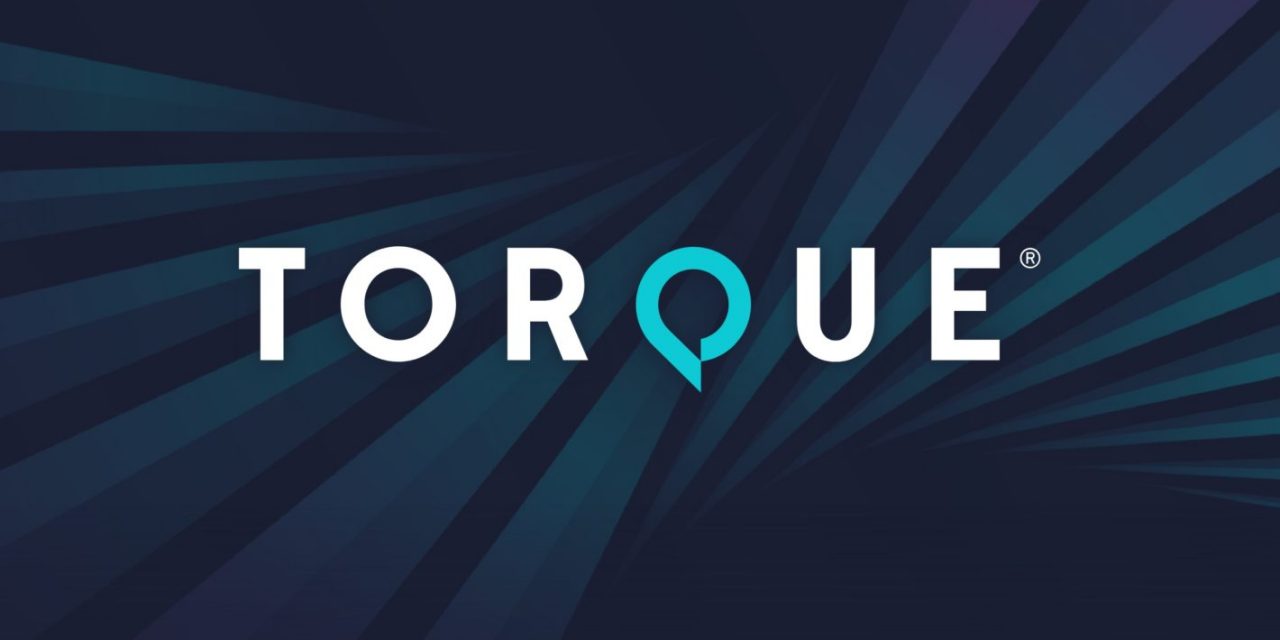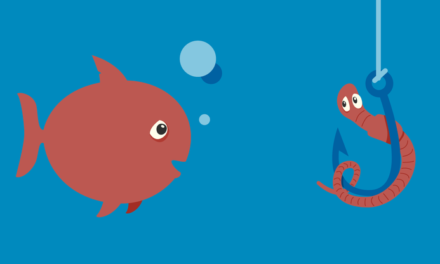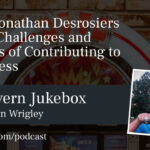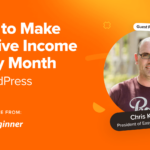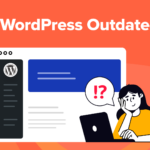Welcome to Press This, the WordPress community podcast from WMR. Here host David Vogelpohl sits down with guests from around the community to talk about the biggest issues facing WordPress developers. The following is a transcription of the original recording.
David Vogelphol: Hello everyone and welcome to Press This the WordPress community podcasts on WMR. This is your host, David Volgelpohl. I support the WordPress community through my role at WP Engine. And I love to bring the best of the community to you hear every week on press this as a reminder, you can follow me on twitter @wpdavidv. You can subscribe to press this on iTunes, iHeart Radio, Spotify, or download the latest episodes at WMR.fm. this episode I’m, we’re talking about something that’s near and dear to my heart, why do big stores choose WooCommerce and to join us in that conversation, I’d like to welcome back and press. Yes, Mr. Jonathan Wold of Automattic Jonathan, Welcome to Press This.
Jonathan Wold: Thanks David. Good to be back.
DV: Yeah, awesome glad to have you here I always love talking with you and with the lack of in person boot camps, glad to get the opportunity to do that here on Press This. So for those listening what we’re going to talk about today is really Jonathan’s thoughts around why WordPress dominate global e commerce in general, and really focusing on how brands are using WooCommerce and WordPress Netscape. So, Jonathan I know you’ve answered this question before I press this but for those who didn’t catch that prior episode Could you briefly tell me your WordPress origin story. When did you first use WordPress.
JW: Sure. So, over 15 years ago, I was an intern. I was asked by my mentor to work on adding a blog to her site, didn’t know how to do that had some ideas search found in WordPress and to work on, I need help, I posted on the.org forum and a bunch of helpful folks including Matt jumped in to figure it out, and I got hooked WordPress impressed me as a piece of software and the community was really what won me over and I’ve never looked back since I started writing tutorials on what I learned, and one thing led to another and to quote Hamilton I actually wrote my way out.
DV: You know I almost had a similar origin story, similar experience but I chose Drupal so I ended up experimenting with Drupal for a while before finding WordPress. That’s kind of funny that you landed on WordPress with that project. So you mentioned how you’ve kind of expanded your role and the request ecosystem figured automatic now, which is great. Can you help us understand like what do you do and automatically what’s your, what’s your role.
JW: Sure. So I lead community initiatives for WooCommerce, and that means a lot of different things right now as you guys can imagine WooCommerce is growing fast, we were having a hard time keeping up with just the amount of things need the amount of things to be done inside So, day to day that looks like a number of things that are community spaces or meetup program. I’m working on the blog right now, we’re using WooCommerce live. Anything that can help merchants succeed if I have to pick one thing work we do in communities, what can we do to help more merchants get to their first customer, and go on to whatever the next milestone is nice.
DV: I’ve seen that in action I saw a lot of your peers in the WooCommerce slack community. I think it was around WordCamp Europe, if I’m not mistaken. And, you know, I think in general I think that’s one of the standout slack communities in WordPress course the org community itself and Slack, Genesis as a very strong line and woo is definitely definitely in the top echelon in terms of how that community is managed and engagement that happens there across people have different ideas and getting back to the topic like why do you think WordPress in open source, have a greater market share than closed source platforms like Shopify or just generally like saas like commerce solutions.
JW: And there’s a lot of reasons for this if I have to pick one thing though. I would say momentum. You take my origin story 15 years WordPress. Just over 17 years old now. And there is a lot of momentum that often gets discounted because it doesn’t have a flashy company with big marketing budgets. People don’t realize just how big it is, there’s other reasons but if I have to just make one thing like you get that flywheel effect. Going compounding and there’s just so much momentum, even behind the scenes. And it’s very hard to discount that.
DV: So, what do you think, like, is to route into that momentum I get like people are like I remember my agency days people are like, I guess you’re gonna build me a WordPress site ha, like it was assumed that that was what was gonna happen. And, you know, I think as I looked at closed source systems at that time which was a good choice for some customers. The thing that prevented the being closer system being the best choice for the customer was often customization. And this like they had an idea or kind of a unique one and he had a unique way to stand out, like what do you think is the driver for that, like defective momentum.
JW: There’s three things that there’s three things that stand out to me. The first is from the beginning WordPress has been focused on non technical, like, I like to simplify it as WordPress at its heart is about empowering creativity especially non technical folks so, like, it’s, we take that for granted now because a lot of these proprietary systems have done a great job and user experience but WordPress was kind of cutting edge back in the day it was for bloggers non technical folks. The second thing is the concept of ownership right like with WordPress and people get this like we talked about I think people also just feel it inherently like oh I own this, this is mine I can, there’s a sense of identity there and the third is just, you already alluded to it the level of flexibility. Like, you can do things in WordPress today that no one imagined. 15 years ago. Yeah, you think those three things there’s a compounding effect that you just. I would say we’re losing a little bit today on user experience, but the sense of ownership among, and flexibility is still there and stronger than ever.
DV: Yeah, I think the two of those reasons that really stand out for me almost on a daily basis, particularly when I think about the block editor, its evolution and core is the ease of use for non technical folks, and the extensibility and customization, and I think this is part of where sometimes people get lost when they think about WordPress is they’re like, oh it’s it’s it’s a tool for someone to DIY a website which it is wonderful at that. But when you marry the customizations that a development team can make and deliver to the content creator. In an easy to understand way. That’s when you have something special in my mind that’s different from say a class or system where I can’t, you know, do it my way. But, you know, again, thinking about like the fact that content creators marketers and business owners di wires, if you will, can also execute using those custom experiences through VPN and similar approaches really, I don’t know, it’s, I think to me what what is special about it. So I mentioned how I use closed source systems in the past and some clients really wasn’t good fit for that. To be fair though, what are some reasons that are good, what are some reasons people might want to choose closed source platforms like WordPress is wonderful in these ways like what are the benefits of choosing close source.
JW: Yeah, that’s a great question and I’m quite optimistic on closed source generally I think it’s great. When I think about mission to blue to democratize commerce I’m grateful for Shopify as contributions to that broader mission right for me if I summarize, I’d sum it up, I think if I pick one thing it’s probably convenience, right, like with closed source systems, they often have better user experiences more money has gone into that to make it easier to get for someone to get up and running. And if you think about, like, just take a broader concept like owning real estate, there are situations where most people would agree that in general it’s better to own the thing, versus rent. There are some situations though where it’s better to rent, get up and running quicker it’s more convenient it’s a faster thing but if you’re building a business for the long term. That’s where you just have to really weigh like where do you run that is where do you want that sense of ownership to sit Are you happy to rent someone else’s thing. But there’s good reasons to do that. There’s a lot of convenience.
DV: Yeah, I think the analogy around renting an E is really interesting I think the thing that stood out for me like the anchor reason I would typically choose a closed source platform recommend that to an agency client was whether they were going to keep me as an agency, you know, kind of Undertaker if you want to help them management, or whether they had those capabilities, internally. This management piece is really interesting. I’ve got an analogy on that I wanted to mention to you and have you respond to that we’re going to take a quick break and we’ll be right back.
DV: Hello everyone welcome back to press this WordPress community podcast on w EMR. This is your host, David Vogelpohl I’m in the middle of interviewing Jonathan Wold from Woo Commerce and Automattic Jonathan, right before the break we were talking a little bit about well, when are good reasons to choose a source to kind of basically provide kind of fair weight if you will, to the argument or the consideration. And I was mentioning before the break that Jason Cohen, the founder of WP Engine has this analogy that he tells, and he’s he talks about WordPress and one of his strengths of course is that it’s free, but it’s free like a puppy dog is free, because there’s a lot of work that goes behind that. So how do you think about that, like when men, I mean you know WooCommerce has this amazing book market share, but like, with all that power comes a lot of responsibilities and how do you think about how organizations or businesses make this determination of like when do I want the puppy dog and all the excitement and enjoyment that comes with that and when do I want something a little more say, or should I say safe for me to maintain easier for me to maintain.
JW: When I’m talking to beginner merchants I like to do that just to stay fresh in it. One of the things that I found to be really helpful is to be open up front about the learning curve. And when I talk about using Woo, and open source WordPress in general I presented within that content context, it’s, it’s something to learn. Like, there are tools that it’s a new set of tools there’s things to learn there it’s all just going to be done for you, and and that for, for, that’s not a fit for everyone. So I want to like why don’t want to learn anything right now I just want to like get something done. Okay, well, proprietary platform I’d be a better fit. If you’re someone who’s curious though and wants to learn a thing that WordPress and WooCommerce both have is this incredible community because of that sense of ownership, because of just the nature of the project. There’s a community who’s willing to hold your hand and teacher you can go to a meetup you can read countless tutorials. It’s important to be up front though that there’s a learning curve, and if you take this puppy idea. I’d say the long term is like well you have this incredible, like creature in your life who can love you and there’s something that you can’t really trade there right like. So, but it’s work, And that’s how I like to position as like it’s work that gets, it’s going to get better and continues to get better will it you know the proprietary platforms will probably always have an edge they’re less work, right, less that you have to learn to get it working. There’s also reward to learning now.
DV: Yeah, I think those are good points. Maybe it’s like the robot dog versus the real puppy. Yes, gently like clean up after just it’s there but it’s obviously not as much enjoyment. And I think that’s great, really it’s, it’s, it gets down to, I think the learning part is really interesting well you pointed out that the community helps each other. One of the mottos will say in the Genesis community is better together, right, like you said, somebody taught you. And then now you teach other people and this is kind of common. And I think it’s also, it’s interesting because as business owners and people that DIY do these things they’ll often transition into businesses that do that does this for others.
JW: Do you see this often with WooCommerce stores, owners as well or is it more just like I’m trying to sell my widgets and that’s all I care of it’s an interesting trend because on the one hand like one of the challenges I have in the community space is that as people learn, like there’s there needs increase and there’s this tendency like people naturally become more technical they become more capable and as humans, one of the risks that we run is forgetting that we wants to know, right. So, one of the interesting challenges is that like a meetup in general will become more technical naturally over time because people are learning and they’re contributing back and they’re helping each other. So we in community say okay, what can we do to make sure that we keep the barrier low for those beginners, which Yeah, there is a natural tendency there’s a natural path that people who build a successful WooCommerce store, like they tend to want to do more with that they’ll either start more or they’ll help other store owners like they figure there’s an, you feel empowered and you kind of don’t want to stop.
DV: Yeah, I think that’s a good distinction with open source and closed source systems that some communities tend to be a lot stronger. Certainly, that’s true, WordPress. So we’ve talked about like the general benefits of open source versus closed source, but I want to get a little bit more specific with WooCommerce, you know, again, dominant ecommerce solution on the web. Well, other than the open source nature of WordPress. And in general, what makes some commerce special.
JW: So, I think, and more of us are starting to think like this, I think of WordPress as an operating system for creating on the web. And you can sort of unpack that it’s pretty straightforward, like an operating system has, you know, an audience set of capabilities and interface. It’s not a stretch to imagine it. Part of what makes you special is that it’s built on WordPress, so that’s important like that’s that’s at its core like it is riding the momentum and there’s this sort of natural transition over time for a lot of like independent folks like entrepreneurs who started on WordPress where commerce is a very natural transition you go from content to commerce, we was kind of in a perfect spot there to to capitalize on and serve that momentum that that word. WordPress offers.
DV: Yeah, I tend to agree I think either strength I think we we bring to the table I mean certainly from a feature set perspective, very comparable and not exceeding other platforms in a lot of ways. And then of course augmenting that is the whole ecosystem of other extensions and add ons and plugins and so on and so forth that really make us special and provide a lot more variety. So I’m going to switch one good. I was gonna switch gears and that was okay because I want to talk about big stores that’s what we’re here for.
JW: in transition to that to the other thing that makes woo special is its nature is as what I describe as an ecosystem plugin. It’s a lot bigger than just being a plugin there’s an entire ecosystems including big stores and their unique needs. That’s part of what makes Woo special.
DV: what is the movie where they go into the future with the apes Planet of the Apes implanted in the age span john I I’ve actually not seen them.
JW: I’ve seen some of one I’ll have to work on that.
DV: The modern version version in one of the films has a scene where one of the main ape characters takes a stick and breaks in half and says HLN week. It takes multiple sticks and you can’t break them things like games together strong really powerful moment, and the movie but it really reminds me a lot of how WordPress. Also the blue stem community if you will operate. So I think that’s both true in the community that is also true in the way these products, and these ecosystems exist around something like WooCommerce and WordPress. Okay, big stores for big stores using Whoo. Is it more common for a site to get big after they started with glue or big stores switching to glue or is it a mix of this for larger ecommerce sites.
JW: My experience so far it’s a mix, like you definitely have a natural progression, I know merchants who started out with little blog posts that turned into multimillion dollar WooCommerce businesses and beyond. I’m tending to be a bit more biased recently because I’m noticing more I’m noticing more of bigger merchants coming in, then. So, but in my experience, it’s a mix.
DV: So, let me break this down I guess into each cohort if we will so if we have a store that gets big after starting with blue. What does that. What does that path commonly look like or do they Is it like a solo store operator that hits a big with some idea. Is there some other are there particular things that that store owner has to consider help me understand a little bit about that journey.
JW: Yeah, like anything it’s mixed just given the size of Woo I think that’s what you described is a pretty typical path, a store owner starts small like they were usually already on WordPress and then the business grows they build a team and all the relevant infrastructure around that and because they started on loom because they feel that sense of ownership. I recall a few years ago trying to convince a store on a friend of mine to move away from Wu over to Shopify I hadn’t fully seen the light yet. And he wouldn’t do it. He’s like, I know I, I, and when I asked him later about this, we boil down to that sense of ownership like he didn’t why why would you give that up. When sure there are things that weren’t quite as nice or quite as polished but he had this optimism that it will get better. And if it doesn’t get better I can help make it better.
DV: Yeah, I think that sense of ownership is so key particularly when you talk about this customization right it’s not WordPress is funnel or WooCommerce has been around, it’s my. It works this way that I figured out was the best way to make it work. And, yeah, relinquishing that control when you’re trying to optimize your digital business can be an extremely difficult thing to do. I want to now shift to the other side of the code of the cohorts store owners that are switching from some other thing to WordPress, they’re already big, but we’re going to take a quick break. We’ll be right back.
DV: Welcome back to Press This WordPress community podcasts on WMR. Again, this is your host David Vogelpohl I’m interviewing Jonathan Wold about why big stores choose WooCommerce jobs and right before the break you’re sharing a little bit about the journey of store owners, starting with who is maybe a solo operator and maybe hitting it big and growing a team around that. I want to talk to you about the other way around, though, these are large e commerce stores, switch from maybe a proprietary closed source platform to something or to help me understand that journey like why are they doing that.
JW: There’s two reasons that stood out my experience Well it’s interesting. So my background I spent quite a bit of time in WordPress in the enterprise and there’s similar reasons why they enterprises are switching to WordPress. The first one is a lower cost. You know that the rent, if you will, like eventually you get to a point where it’s like, okay, we have an option like in real estate, you can always buy the place that you’re renting but here you can you can say okay we want to take this and we want to lower the cost with Shopify for instance, that percentage starts to really get up there once you get into the higher echelons of sales so lower costs is one, and both short term and then like looking at that total cost of ownership. And I think the other primary reason I see is the flexibility. It’s, we want to be able to do this other thing we just can’t do that on Shopify or wherever else we want to have this flow work this certain way. And we want that we’re going to have that.
DV: Yeah, so much of this gets back to flexibility, I think that, you know percentage of sales billing models you reference obviously can get really burdensome at scale. But then customization I mean again my records drawing on my own personal experience which isn’t limited per se but of course it’s limited just to my world. Because summarization was always the thing I loved this phrase in my agency days when I was working with clients I explained how certain platform or technology worked and what it could do. And they would say, I have an idea. Can I do this. Can I do that and I was always as an agency I love that because it was customization work and revenue. But it was always something about their special sauce, the way they did things the way they wanted it to work. And, you know, iTunes, you know, Jonathan had been involved with talking to enterprise companies about adopting WordPress. And the analogy I would use is like, well, you have the exact same features that everyone that uses that platform has in the exact same way. And when new features are released and you have an opportunity to stand out. So does everyone else using that thing, and in the exact same way. closed source in the way I put it equalizes innovation. Open Source and open platforms, allows you to invest and scale your innovation. And so, I think, hearing about how you described this and the blue context makes a lot of sense to me What do you think about all that.
JW: I like that a lot. It’s sort of that you’re beholden to what they do. And, and some like there is some conditional flexibility like Shopify you can build custom extensions. Sure, sure, sure,
DV: not everything on Shopify is an inherent, there’s an inherent like it’s not yours
JW: right like you have to ask it permission and at worst just can’t do it.
DV: Yeah, I mean it’s it’s really interesting to think about how brands make these decisions. When I came up with that analogy was actually after looking at an RFP. And they were like, does WordPress do these things and I was like, in some way Yeah, all of them. And then of course, it was a fairly big company, they can just invest in developer to create a custom plugin that does it their way. He was funny because they were like nearly begging to have, you know, influence on the roadmap and I’m like you’re asking the wrong question. The question is what is WordPress do question is what do you want it to do. And then you might decide if it’s a new choice from that job or not but it’s what do you want it to do fundamentally this way I think about it, well, Jonathan, this was wonderful. Thank you so much for talking about all this today.
JW: My pleasure. Thanks for having me.
DV: If you’d like to learn more about with Jonathan and his friends are up to you can visit Automattic with two T’s at the end .com, or WooCommerce.com of course the world’s number one, ecommerce platform. Thanks everyone for listening to Press This WordPress community podcasts on WMR. Again, this is your host David Vogelpohl, I support the WordPress community through my role at WP Engine, and I love to bring the best of the community to you here every week on Press This.

